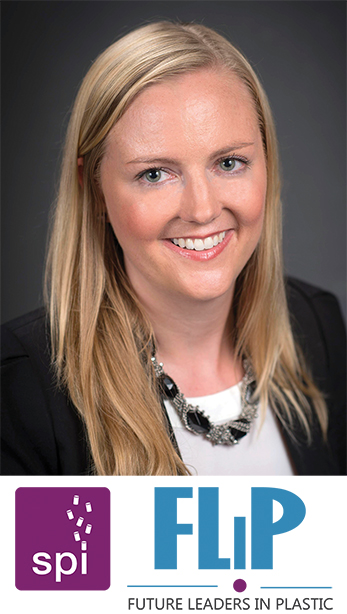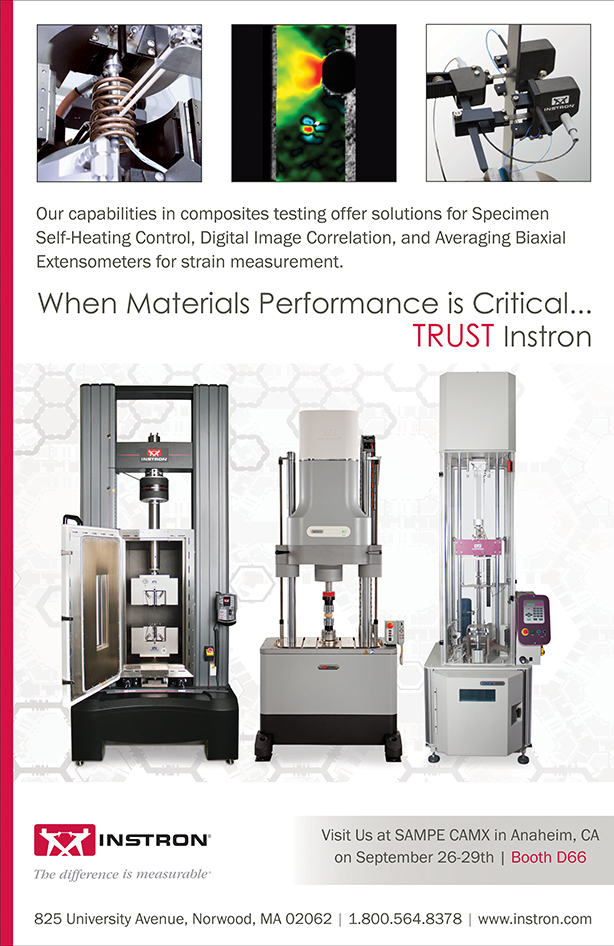The FLiP Files: Katie Masterson
Previous Article Next Article
The FLiP Files: Katie Masterson
Previous Article Next Article
The FLiP Files: Katie Masterson
Previous Article Next Article

The FLiP Files is a blog series spotlighting young professionals that are active in SPI’s Future Leaders in Plastics (FLiP), a group for plastics professionals under the age of 40. For our fourth entry, we spoke to Katie Masterson, who works for SPI in Washington, D.C.
Where do you work and what’s your title?
I work at SPI: The Plastics Industry Trade Association, where I am Senior Program Manager, Industry Affairs for the Equipment Council.
Tell us a little about what your organization does.
SPI represents and advocates for the full supply chain of the plastics industry. We help members be more successful in their businesses. We provide programs, education and conferences and councils and committees that bring the supply chain together to solve industry issues.
How did you find yourself working in the plastics industry?
When I graduated, I was interested in working in the D.C. area for a smaller company or a nonprofit and was getting a lot of leads with associations. (There are a lot of associations in the D.C. area!) I started my career at the American Society of Interior Designers, where I worked on continuing education, specifically in the online learning environment. I was ready for a new challenge and joined SPI in 2012. I saw SPI as a good next step in diversifying my association management skills and knew I would be surrounded by peers I could learn and grow from.
Some of the programs I manage are the Committee on Equipment Statistics (CES), and the Safety Standards & Awards Program (SSA). I also assist with other Equipment Council activities, such as the Machinery Safety Standards Committee, and the Equipment & Moldmakers Leadership Summit. I manage, along with other young professionals on SPI’s staff, the Future Leaders in Plastics (FLiP) group.
Has anyone in the industry mentored you?
I was fortunate to work with Jackie Dalzell when I first started at SPI, who was always willing to share her knowledge and passion for the industry with me. Although she has since moved on, she still is a great mentor and friend.
I also have to note my Equipment Council and CES leadership, as they are always willing to answer my questions and help foster my knowledge of the industry. They are a wealth of knowledge with their tenure in the industry. I’m lucky to work for such a group.
Describe in one sentence what you do on an average day.
My typical day varies, but can consist of CES report follow-up, reporting definition discussions, committee and subcommittee calls and web meetings, reviewing economic reports, program management planning for SSA or FLiP, meeting prep, writing update reports for committees, etc.
One thing I love about my job is when an issue arises that members would like us to address, we must look at the problem and come up with a plan to help address it. So it’s a lot of problem solving with no instruction manual, which I love.
What do you like most about working in the plastics industry?
It’s an industry filled with enthusiastic people who are passionate about what they do. It’s a privilege to work for such a group and hard not to catch the passion.
What’s one thing about your personal life that you feel has been changed by having a career in plastics?
I’ve become an advocate for plastics. If a peer or friend says something un-factual about plastics, like “don’t buy that one because it’s plastic, get the glass bottle because it’s more ‘green’,” I know how to productively counteract that comment with facts like, “Well, plastics are recyclable and it took less energy to ship this plastic bottle to this location,” etc. People can easily be reminded that plastics are needed in many facets of our everyday lives and bring a lot of good.
What are the major challenges you see facing the plastics industry today? How do you think the industry can overcome them?
As of 2015, millennials are the largest generation in the workforce and will be taking over baby boomers’ positions and leadership roles as the baby boomers retire. I think ensuring that my generation is prepared for this transition is a challenge the industry is facing. FLiP’s Mentorship Program and more internal succession planning at plastics companies will help ease this transition. The transition to a largely millennial workforce is coming quickly and I am sure my generation is ready for the challenge, but we know we need our predecessors’ guidance to help ensure our success and the success of the industry.
Why do you think someone from your generation should consider a career in plastics?
Because there are a lot of opportunities. I was at Wittmann Battenfeld USA for Manufacturing Day 2015 and their President, Dave Preusse, highlighted to the students that there were over 30 different job types at their facility from marketing, to accounting, to engineers and technicians. I think that’s a great point. It’s rare that people know exactly what they want to do for a career, but if they know about opportunities the plastics industry has to offer, they may consider it down the line.
What’s one plastic product you couldn’t live without?
My contact lenses. I love my glasses too, but it’s crazy that a curved piece of plastic you place on your eye can make the world beautiful and crisp.
